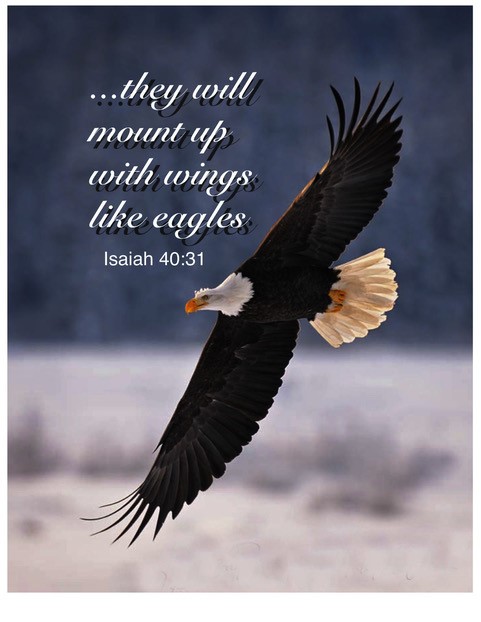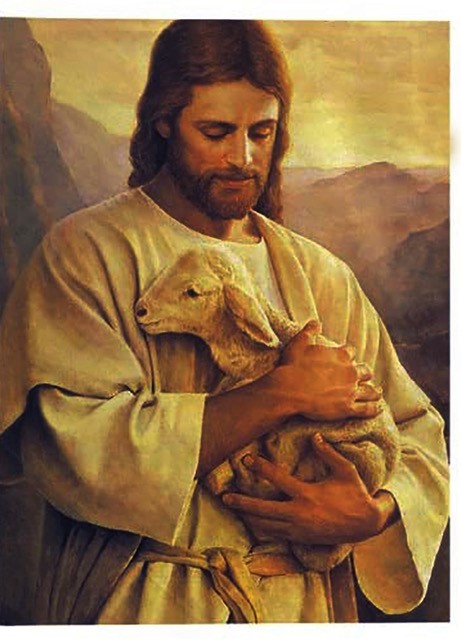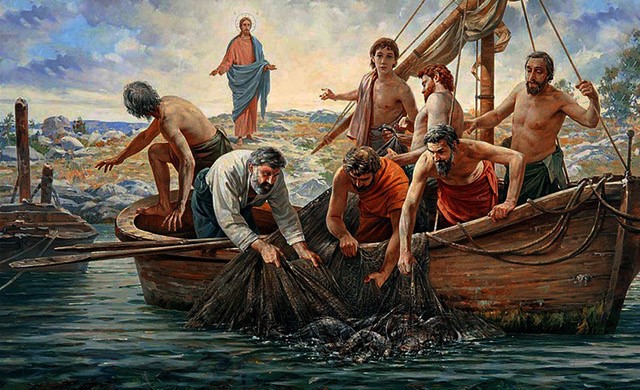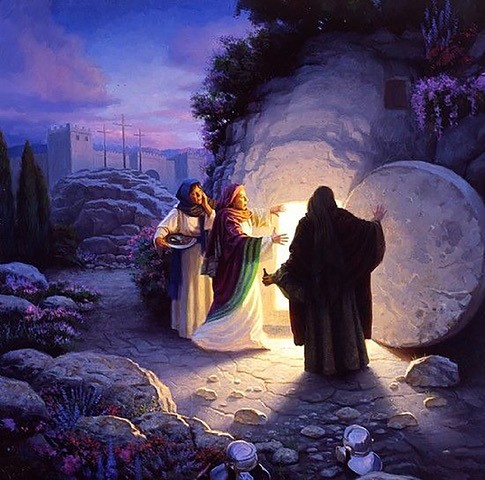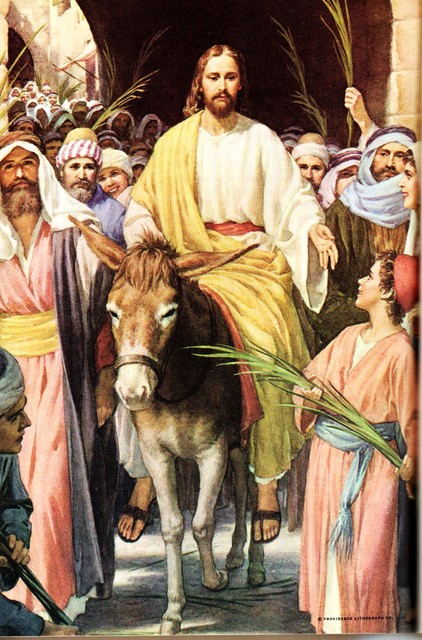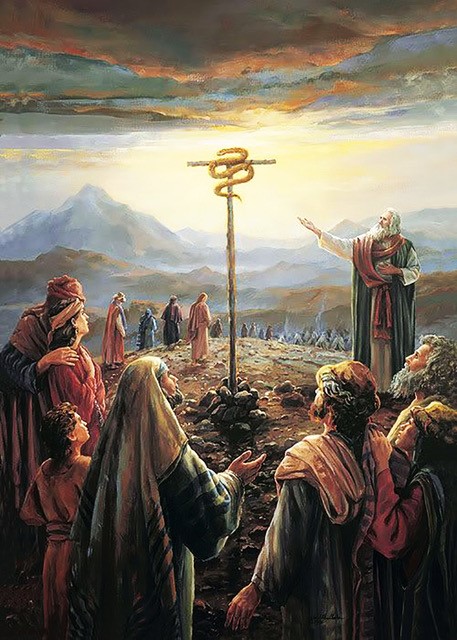
Sermon for the Sixth Sunday of Easter; Rogate: May 9, 2021 jj
Rev’d Mark B. Stirdivant, Good Shepherd Lutheran Church, Yucaipa, California
✝ sdg ✝
Jesus had already taught His disciples the Lord’s Prayer, the greatest, most holy words that human beings can say back to God. They had asked Him, with some urgency it had seemed, “Lord, teach us to pray, as John taught his disciples.” And so the Lord gave them a truly blessed privilege, the privilege to call upon God your own Father in prayer. Remember how the catechism puts it when it explains the words Our Father who art in heaven: With these words God tenderly invites us to believe that He is our true Father and we are His true children, so that with all boldness and confidence we may ask Him as dear children ask their dear father. What a treasure this prayer must have been to them! So precious that their ears might have tingled once they heard the Lord’s Prayer. You would think that they would have prayed this prayer constantly, knowing that the Son of God Himself told them, “When you pray, say, ‘Our Father…'” and so forth.
Would you believe that they didn’t even bother? After He taught the disciples the prayer, the Lord’s Prayer, just like they asked Him, none of those eleven men had yet uttered a word of it, even up to the hours before Jesus would begin His Passion and suffering. “Until now,” He says, “you have asked nothing in my name.” He had to repeat to them His invitation to pray, almost pleading to them with the words, “Ask, and you will receive, that your joy may be full.” Why did they hesitate to pray? Why did it take Jesus until the eve of Good Friday to convince them they have this blessed access to God the Father?
Perhaps, but only maybe, they have an excuse. And that would be that these men were with Jesus constantly, talking to God in the flesh, hearing His gracious words of life and forgiveness. True, the Lord told them ask anything in my name it you shall receive it, but they truly had all they could possibly dream of, walking with Christ from place to place. Plus, it was not yet clear to these disciples how Jesus would bring their prayers to the heavenly Father. It would not be based on the specific words they would say, nor on anything good that they did, and not even based on the fact that they are the Lord’s own students. Instead, the Father would hear their prayers based on the death of the Son for their sake. Remember, Jesus was talking about His death when He told His followers, “A little while and you will not see me,” and mentioned His resurrection when He said, “And again a little while, and you will see me.” They already had the privilege of praying to the Father, it was just a matter of time before they will experience the need to pray, and here Jesus invites and even pleads with them to pray.
Where does that leave you? You don’t have the same excuse that the disciples had. You already have the need to pray, whether you choose to feel that need or not. It’s like what Luther would say to someone who didn’t feel the need to have the Lord’s Supper: touch your body, do you feel something? Then you have flesh and blood. Believe the terrifying things that God’s Word says about your sinful flesh, the human nature, and you’ll come every week to Holy Communion. Look around you, see anything? Then you are in the world, and if you really believe what the Bible says about the sinful world and its ruler, the devil, who wishes to attack you constantly, you would be much more serious about prayer than you are most days.
All of you who remember being confirmed: the temptation is unbelievable for you to deny the confession of faith you [had] just made. That’s the devil working. It’s what he wants. You are tempted to think you’re “done,” that there’s nothing more. I know. The same thoughts ran through my head at that time, too. But the Lord has a whole life of prayer left ahead of you. When He washed your sins away in Baptism, He breathed His Holy Spirit into you, the Spirit that cries out “Abba, Father!” in prayer.
But you have often resisted that urge to pray. You have put it off. You have thought that most things in your life are not that important yet. You have worried about what other people might think about you if you were regularly involved in a life of prayer. You have heard your pastor say that you don’t earn God’s blessing through prayer, and so you draw the false conclusion that prayer is not important. Most often when you’ve prayed, you have set terms, limits, demands upon your heavenly Father. You have been upset with Him for not coming through for you in the way you imagined. All the while you have ignored or otherwise failed to see His true blessings right in front of you the whole time. Perhaps you may have prayed for something while at the same time you remained confident that it would never happen.
But when Jesus invites you to pray like He does today, He sets aside all your sins that have occurred in the category of prayer. He not only forgives you for doubting Him, but He also gives you the sure foundation of His promise to hold on tight. That foundation was laid when Christ the Cornerstone was nailed to the cross. The words He said while He was crucified were His prayers made for your sake. Though you might have wasted words or said things you wished were taken back, Jesus made every word of His count so that your sins would be forgiven and you would be considered for time and eternity to be a precious child of God. Because of this, God is eager to hear your prayer, just as He plants within your heart the eager desire to pray.
God the Son assures you that the Father Himself loves you. Believe what He says. Your name is written in the Book of life, not by your decision for Him, but by His grace toward you. Ask God in confident prayer, and you will receive, that your joy may be full at the last Day. In the meantime, confess with your fellow Lutherans that you believe the true Christian faith with all your heart. Recall the promise God helped you to make that you would give up everything else, even your own life, rather than deny anything that the Scriptures or the Small Catechism says. And armed with that confident faith that only the Holy Spirit can give, you are bold to approach Almighty God on a regular basis and in Jesus’ name you are privileged to call Him “Our Father who art in heaven…”
In the Name of the Father and of the ✝ Son and of the Holy Spirit.


